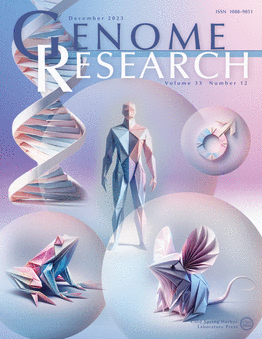Ancient dog introgression into the Iberian wolf genome may have facilitated adaptation to human-dominated landscapes
IF 6.2
2区 生物学
Q1 BIOCHEMISTRY & MOLECULAR BIOLOGY
引用次数: 0
Abstract
Understanding how large carnivores respond to increasingly human-dominated landscapes will determine their future adaptive potential. The Iberian wolf (Canis lupus signatus), a gray wolf subspecies endemic to the Iberian Peninsula (Portugal and Spain), has uniquely persisted in human-dominated landscapes, unlike many other wolf populations that faced widespread extinction across Europe during the 20th century. In this study, we conducted a comprehensive genome-wide analysis of 145 historical and contemporary Iberian wolf samples to investigate whether hybridization with domestic dogs resulted in genetic introgression. We identified a dog-derived block on Chromosome 2 in Iberian wolves, displaying signatures consistent with introgression and high nucleotide similarity among introgressed individuals. Additionally, our estimates place the average timing of introgression between 6,100 and 3,000 years ago, with low sequence divergence to dogs from the Iberian Peninsula suggesting a single local origin for the hybridization event. Using forward genetic simulations, we show that the introgressed haplotype is most likely being maintained in Iberian wolves by selection. The introgressed dog variants are located within the MAST4 gene, which has been linked to neurological disorders, including cognitive and motor developmental delays, hinting at a potential role in cognitive behavior in Iberian wolves. This study uncovers a case of putative adaptive introgression from domestic dogs into wolves, offering new insights into wild canids' adaptation to human-dominated landscapes.求助全文
约1分钟内获得全文
求助全文
来源期刊

Genome research
生物-生化与分子生物学
CiteScore
12.40
自引率
1.40%
发文量
140
审稿时长
6 months
期刊介绍:
Launched in 1995, Genome Research is an international, continuously published, peer-reviewed journal that focuses on research that provides novel insights into the genome biology of all organisms, including advances in genomic medicine.
Among the topics considered by the journal are genome structure and function, comparative genomics, molecular evolution, genome-scale quantitative and population genetics, proteomics, epigenomics, and systems biology. The journal also features exciting gene discoveries and reports of cutting-edge computational biology and high-throughput methodologies.
New data in these areas are published as research papers, or methods and resource reports that provide novel information on technologies or tools that will be of interest to a broad readership. Complete data sets are presented electronically on the journal''s web site where appropriate. The journal also provides Reviews, Perspectives, and Insight/Outlook articles, which present commentary on the latest advances published both here and elsewhere, placing such progress in its broader biological context.
 求助内容:
求助内容: 应助结果提醒方式:
应助结果提醒方式:


